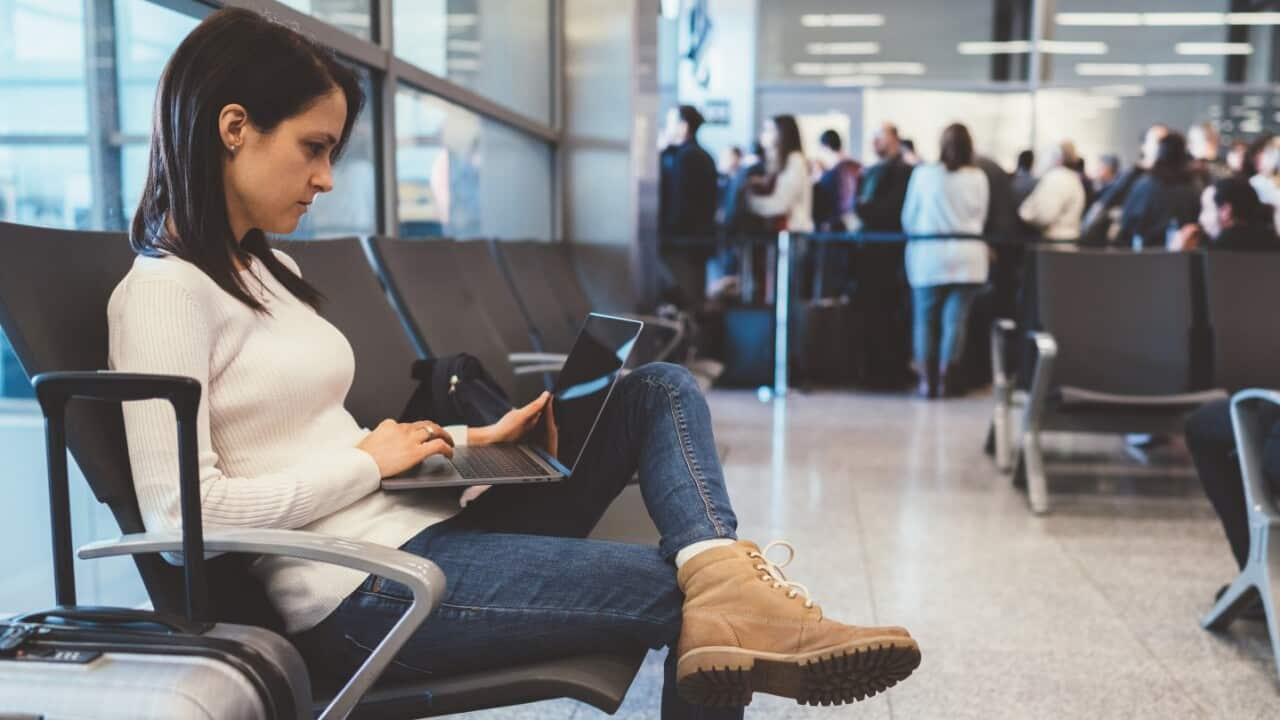Highlights
- India's total COVID-19 cases surge to 18 million as daily infections and deaths continue to mount
- Crematoriums are overwhelmed as bodies are coming in 'non-stop' for cremation
- Indian Australian families are stepping up to help as loved ones battle world's worst coronavirus outbreak back home
WARNING: Distressing content
Living in a tiny village in Gumtala in India’s northern state of Punjab, Rani thought her family was insulated from the perils of the pandemic that has gripped the country, primarily urban India.
Little did she know that virus is immune to the structural divide and would penetrate her home and claim the lives of three members of her family, in three days.
'I went to the cremation ground three times in three days'
“I went to the cremation ground three times in three days,” says the inconsolable 55-year-old Rani whose family has been crippled by the perilous virus that is roughly claiming 117 lives every hour.
“First my daughter-in-law died of COVID on April 20, then it claimed my son on April 21 and then my younger son’s grown-up child took ill. He too passed away after a few hours of his uncle’s death,” she says as she sobs on the phone. Rani’s village is approximately 10 miles away from the nearest city Amritsar that houses the Golden Temple, the holiest Sikh shrine. The gutted mother says with her entire family of six down with COVID-19, they did not have any support to take those critical to the hospital in the city.
Rani’s village is approximately 10 miles away from the nearest city Amritsar that houses the Golden Temple, the holiest Sikh shrine. The gutted mother says with her entire family of six down with COVID-19, they did not have any support to take those critical to the hospital in the city.

Women mourning at a crematorium in New Delhi. Source: Supplied by SBS Foundation
"I fear who would be next. With no help from the government, the poor are suffering, waiting to die," she says.
‘It’s getting scarier by the minute’
Rani’s horror story is being repeated across the country, particularly in New Delhi, the epicentre of the deadly second wave that recorded nearly 400 deaths on Thursday - a record for the capital.
Brisbane-based Raj whose 78-year-old mother has tested positive is currently living with a distant relative in Delhi because there’s no one to take care of her.
The 38-year-old whose outward exemption was revoked after the travel ban says he doesn’t want his mother to become another statistic in the rising death toll.
“I can’t be there with her and she is stuck at my aunt’s house in Delhi. Every time the phone rings, my heart stops because I fear for her wellbeing. The only respite is that she is at home and doesn’t have too many symptoms at this point,” Raj says.
“Every time I switch on the TV, all I see is bodies wrapped in white bags piled on vehicles. It’s getting scarier by the minute,” he adds.
‘Bodies are coming in non-stop’
The political seat of the South Asian country is witnessing a staggering number of new infections daily, where survival has now become a luxury as people scramble for hospital beds, oxygen, ambulances, and a spot to lay their loved ones to rest. Jyotjeet Singh, the director of the disaster cell at Shaheed Bhagat Singh Sewa Dal, a charity group that has been facilitating cremations for COVID-afflicted fatalities tells SBS Punjabi that the waiting time to get to a pyre is anywhere between eight to ten hours at the Seemapuri crematorium, a site in northeast Delhi where the group carries out cremations.
Jyotjeet Singh, the director of the disaster cell at Shaheed Bhagat Singh Sewa Dal, a charity group that has been facilitating cremations for COVID-afflicted fatalities tells SBS Punjabi that the waiting time to get to a pyre is anywhere between eight to ten hours at the Seemapuri crematorium, a site in northeast Delhi where the group carries out cremations.

Jyotjeet Singh with his father Jitender Singh Shanty. Source: Supplied by SBS Foundation
“Bodies are piling up. It’s 8:30 pm (local time) on 28 April and we have cremated over 144 bodies in a day at this site alone. Last week, we were so overwhelmed with bodies that at one point, we ran out of wood for the pyres and had to appeal to people to send logs,” he says. Mr Singh says bodies are coming in “non-stop” and warns that if this goes on for a few more days, they will have to start burning the remains on the roadside.
Mr Singh says bodies are coming in “non-stop” and warns that if this goes on for a few more days, they will have to start burning the remains on the roadside.

Hospitals in India buckle under a record surge in daily infections. Source: AP
“There is no help from the government whatsoever. We have made a makeshift cremation site at the park in the vicinity. Now that is also incapacitated, and we have started to cremate in the parking lot. I wouldn’t be surprised when even crematoriums would start turning away people,” he says.
He claims many deaths are going unaccounted for, especially in cases where people are dying at home while they are quarantined.
“There is a gross underreporting of the number of deaths. Casualties are at least ten times more than the official figure being reported by the government. There is no record or digital footprint of people who never got tested or were hospitalised, and have succumbed to the virus at their homes. People are dying left, right and centre,” Mr Singh adds.
Crematoriums are melting:
Calling it one of the grimmest times in India’s history, Mr P Patel, a worker at the Kurukshetra Crematorium in Prime Minister Narendra Modi’s home turf Gujarat says that last week, the chimney at the site melted as a result of overheating caused by round the clock cremations in the gas furnaces at the premises.
“Chimneys are getting overheated because they aren’t getting time to cool down. Last year around this time, we got a maximum of 25 bodies at the height of the wave, now we are receiving over 100 bodies in a day. It's that bad,” he says.
Civilians stepping up to help:
As many struggle after testing positive, those still safe are striving to help others. Samir Singh, the chairman and managing director of the Delhi-based Sikh Chamber of Commerce has set up a helpline service with a help of over 75 volunteers.
“We have set up a helpline service through which we are helping people to locate hospitals which have oxygen supplies, critical care beds and we are also sending ambulances to people in need,” he says. Mr Singh says people are reaching out to him and his team through phone, WhatsApp groups and social media or word of mouth.
Mr Singh says people are reaching out to him and his team through phone, WhatsApp groups and social media or word of mouth.

Samir SIngh, Chairperson, The Sikh Chamber of Commerce. Source: Supplied by Mr Singh
“They contact us from far and wide and we ensure that patients are connected with providers. We do not randomly provide them with contacts, but we verify them to ensure that if they are claiming to have oxygen cylinders, its not a hoax because patients or their families don’t have time to do this spadework,” the 42-year-old says.
Indian Australians doing their bit:
Devastated by the news trickling in from India, Brisbane-based Karanpreet Singh is raising funds for people battling the virus in India. The 30-year-old father of two says funds raised would be sent to a registered not for profit group in Punjab that will be using the money to buy oxygen concentrators.
The 30-year-old father of two says funds raised would be sent to a registered not for profit group in Punjab that will be using the money to buy oxygen concentrators.

Karanpreet Singh with his family. Source: Supplied by Mr Singh
“The idea is to help. We are sitting miles away from our families and loved ones. At this point, almost every household is impacted be it physically, emotionally, or financially. I know people are sceptical to donate, but I’d say so your bit in whichever way you can,” Mr Singh says.
Click on the player above to listen to the interview.
People in Australia must stay at least 1.5 meters away from others.
Testing for coronavirus is now widely available across Australia. If you are experiencing cold or flu symptoms, arrange a test by calling your doctor or contact the Coronavirus Health Information Hotline on 1800 020 080.
The federal government's coronavirus tracing app COVIDSafe is available for download from your phone's app store.
SBS is committed to informing Australia’s diverse communities about the latest COVID-19 developments.









